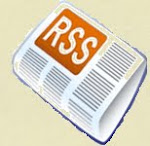
Good Intentions.
I was flying recently and while listening to the flight attendant talk about how to use the oxygen masks it got me thinking about training. There is no actual hands-on training for a flight crash situation for us lay people. The attendant doesn't give us all the information either - like the fact of not getting your own oxygen mask on quickly is imperative in a loss of pressure situation as otherwise you'll be unconscious in 15 seconds.
That's good information, yes?
Akin to reading leadership and self help books, it's all good information but there are no hands on practice. Overcoming bad habits and learning new methods is possible with workshop and accountability based training.
Reading books on leadership, problem solving, strategic planning, software development, time management and while this list really could go on and on as you know the point is, reading books for purpose of development is –and how can I say this politely: “nice”.
Reading books as a group allows for some camaraderie and spontaneous discussion. Reading books is self affirming as often you read about ideas that you currently execute. Reading books is helpful as they give you ideas on how to improve and the methods in how to apply them. Reading books can only take you so far.
The same goes for attending a live training class. Training classes are great for two reasons. First, training exists for most major job skills. Second, it’s pretty easy to send someone to training. Because skills are taught by an ‘outside’ person, one can be vulnerable and ask questions without fear of looking bad in front of their supervisor. As an aside, this is also why I don’t advocate joining your team in the training unless it truly is something new to all of you.
The intention is a good one: you recommend books and send your colleagues to training so that they will better themselves and better the company.
But, what happens after the training?
- What gets implemented?
- What new is executed?
- How much better is that person at their job?
- How will they react in a critical moment?
We all go to work wanting to do a good job. We all want to be the dynamic leader we read about. We all want to be the fast problem solver and the most effective salesmen.
Q: But how?
A: Hands on practice, follow up and accountability over time.
Frankly if you as a manager don’t ask what was implemented from new learning or if you don’t ask to see details illustrating that a better method was employed, why should that employee change?
What do you do to encourage higher margins, permanent root cause problem solving, and effective leadership to those on your team?


No comments:
Post a Comment
I'm very interested in what you have to say. Thanks for joining the conversation! To contact me directly, please write to: jennifer AT werthexpertise DOT com